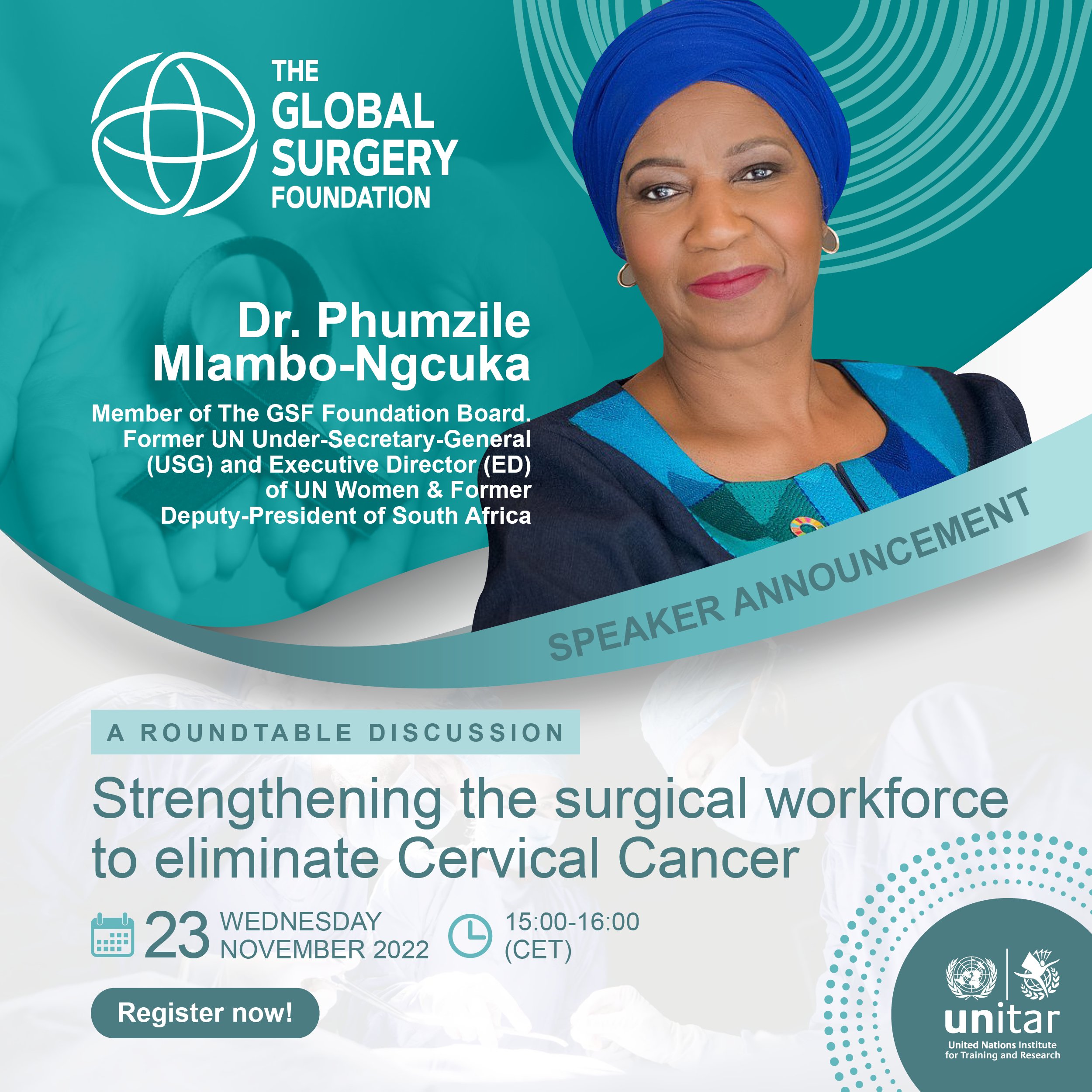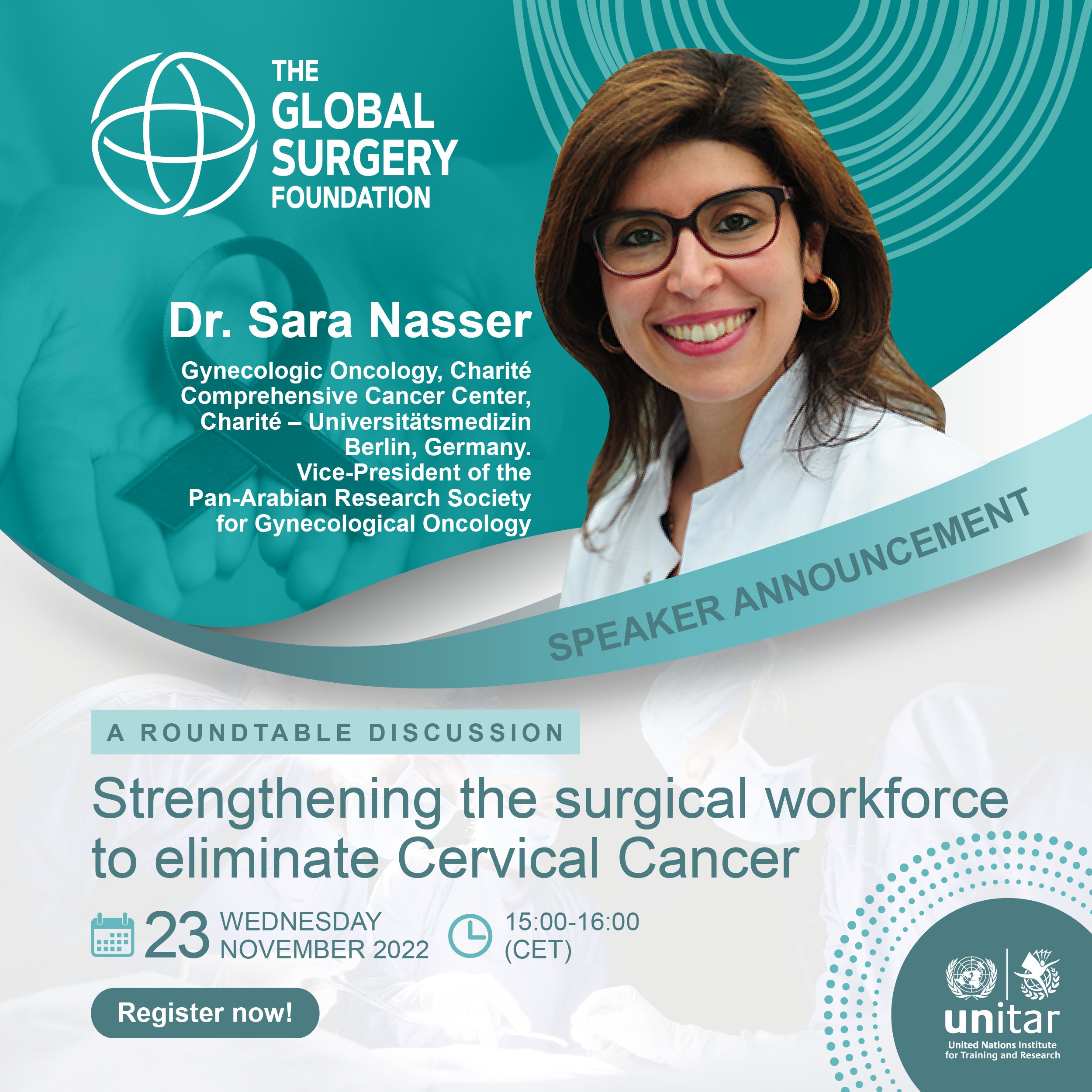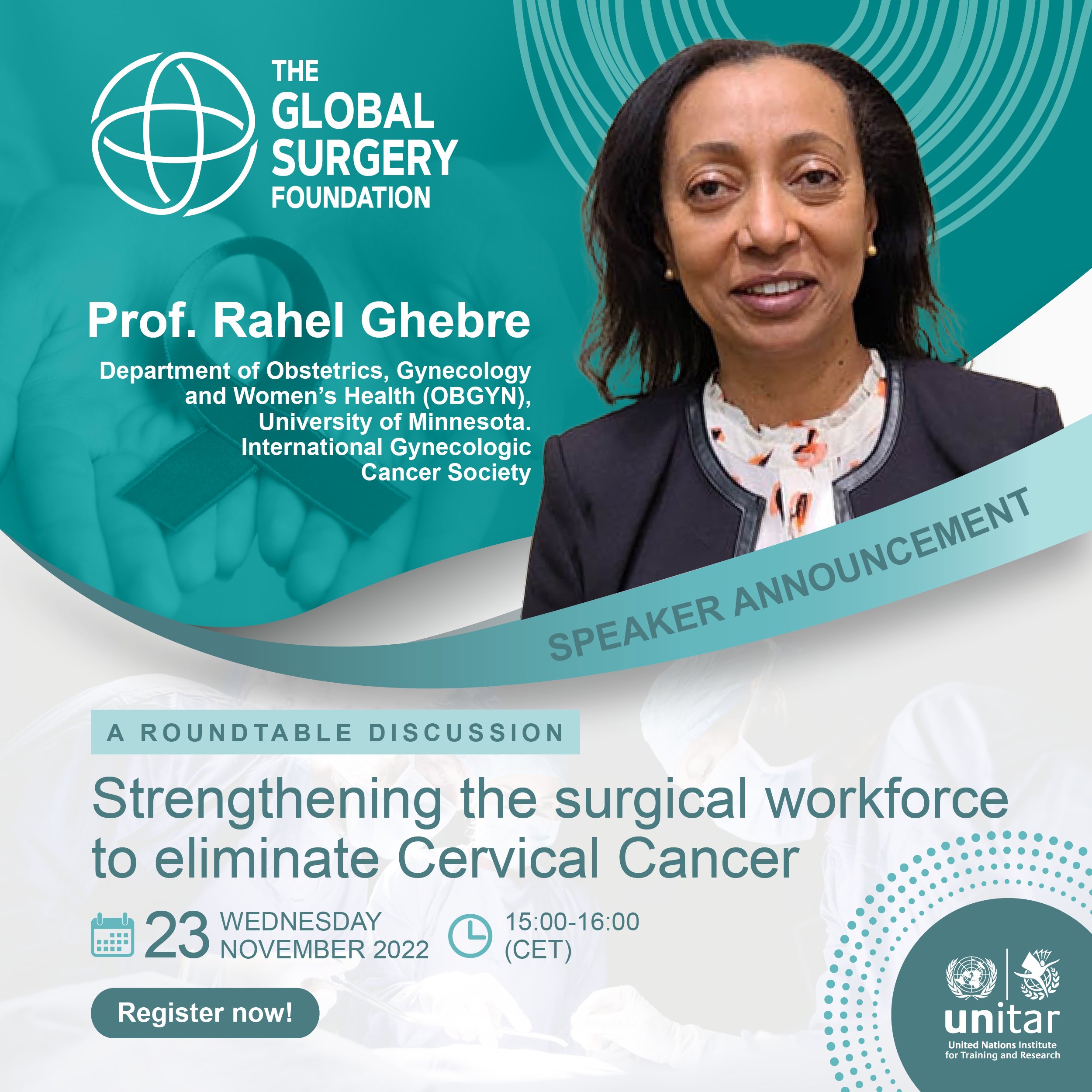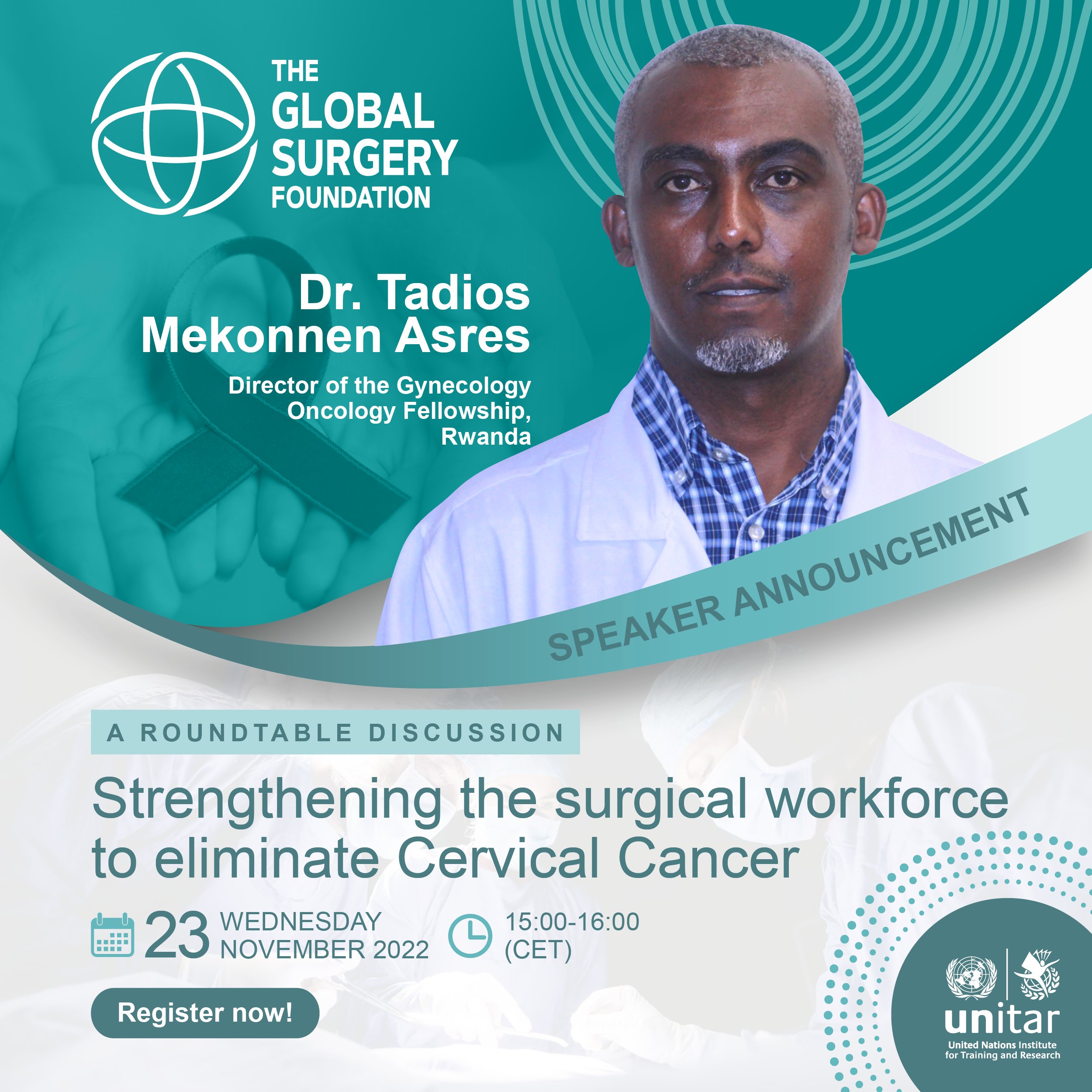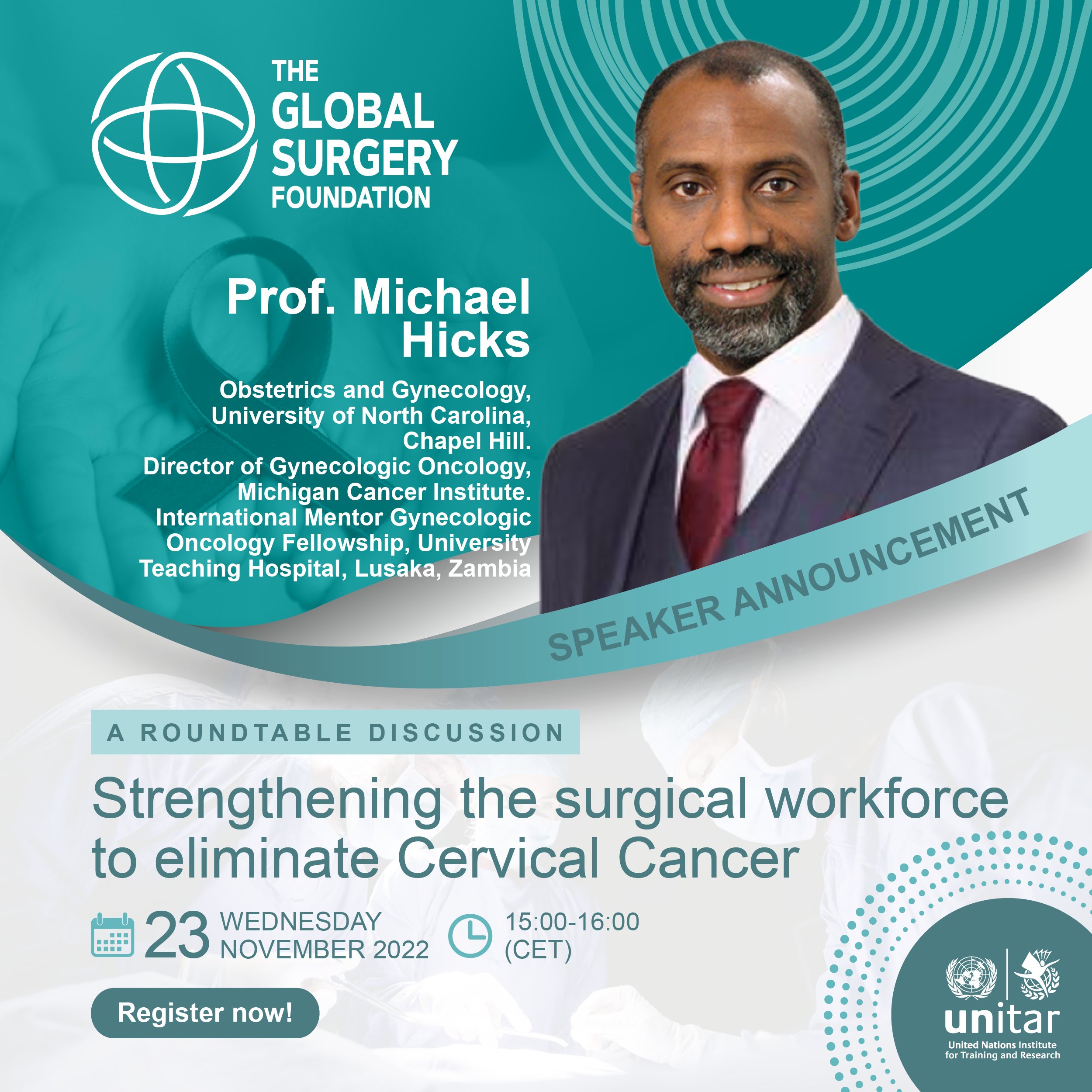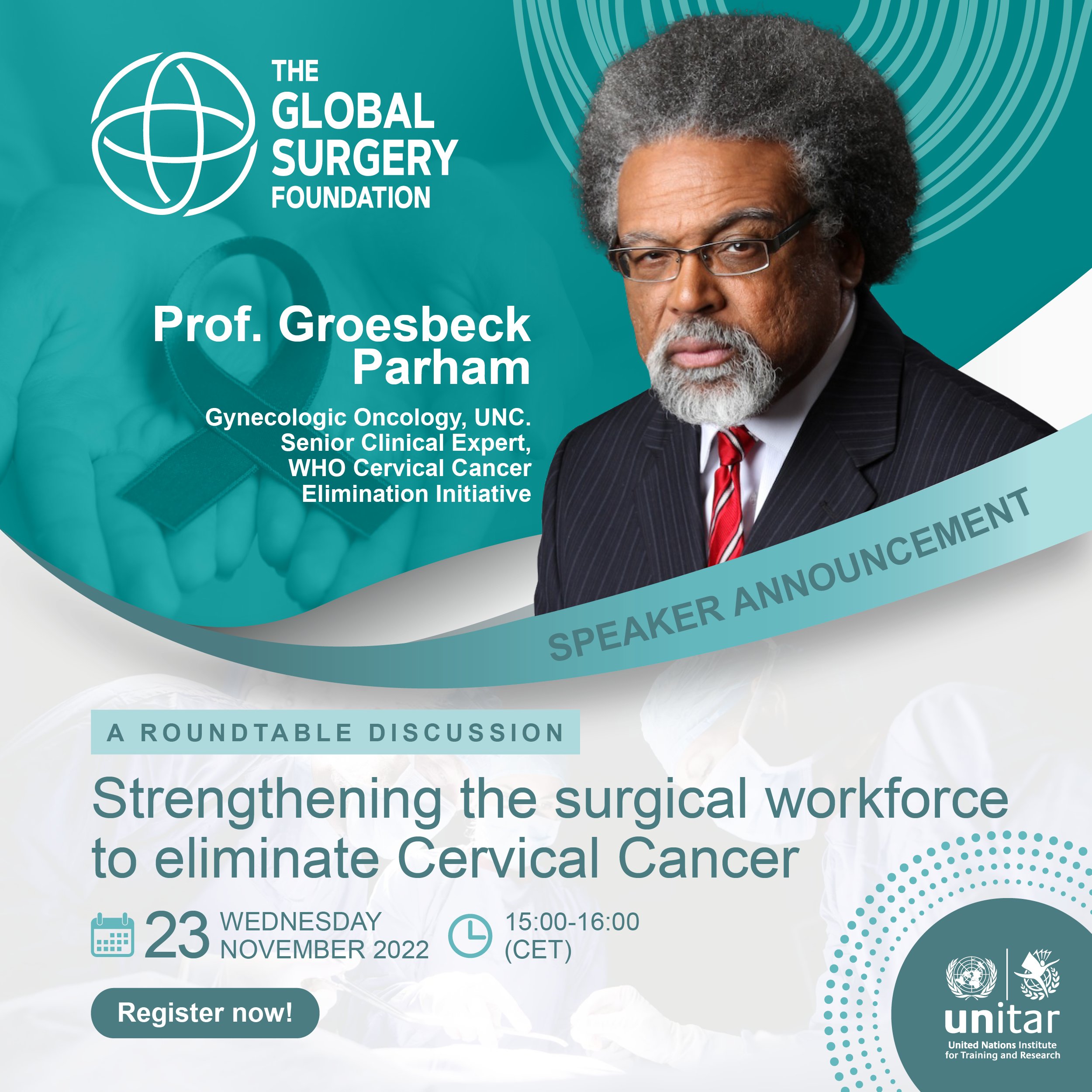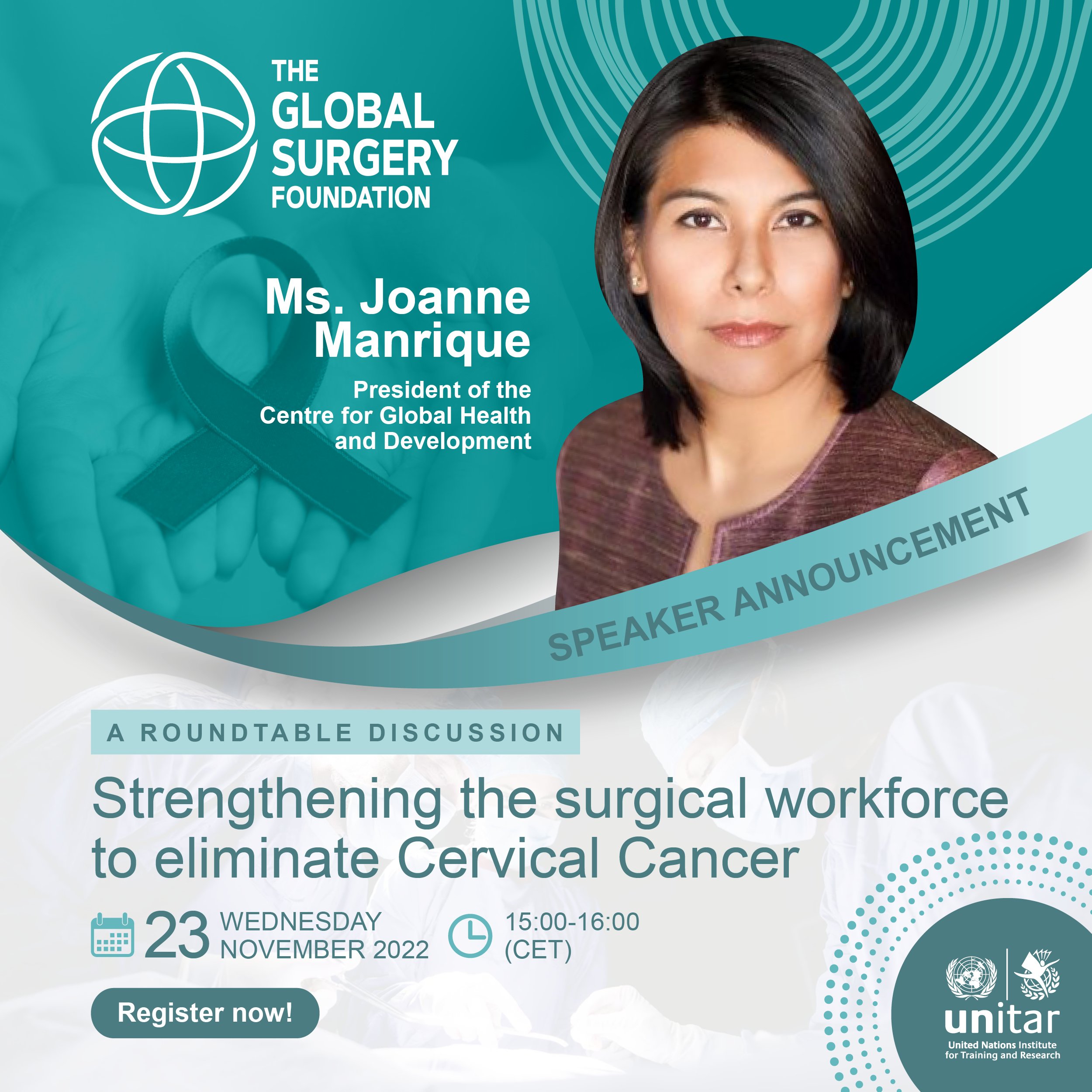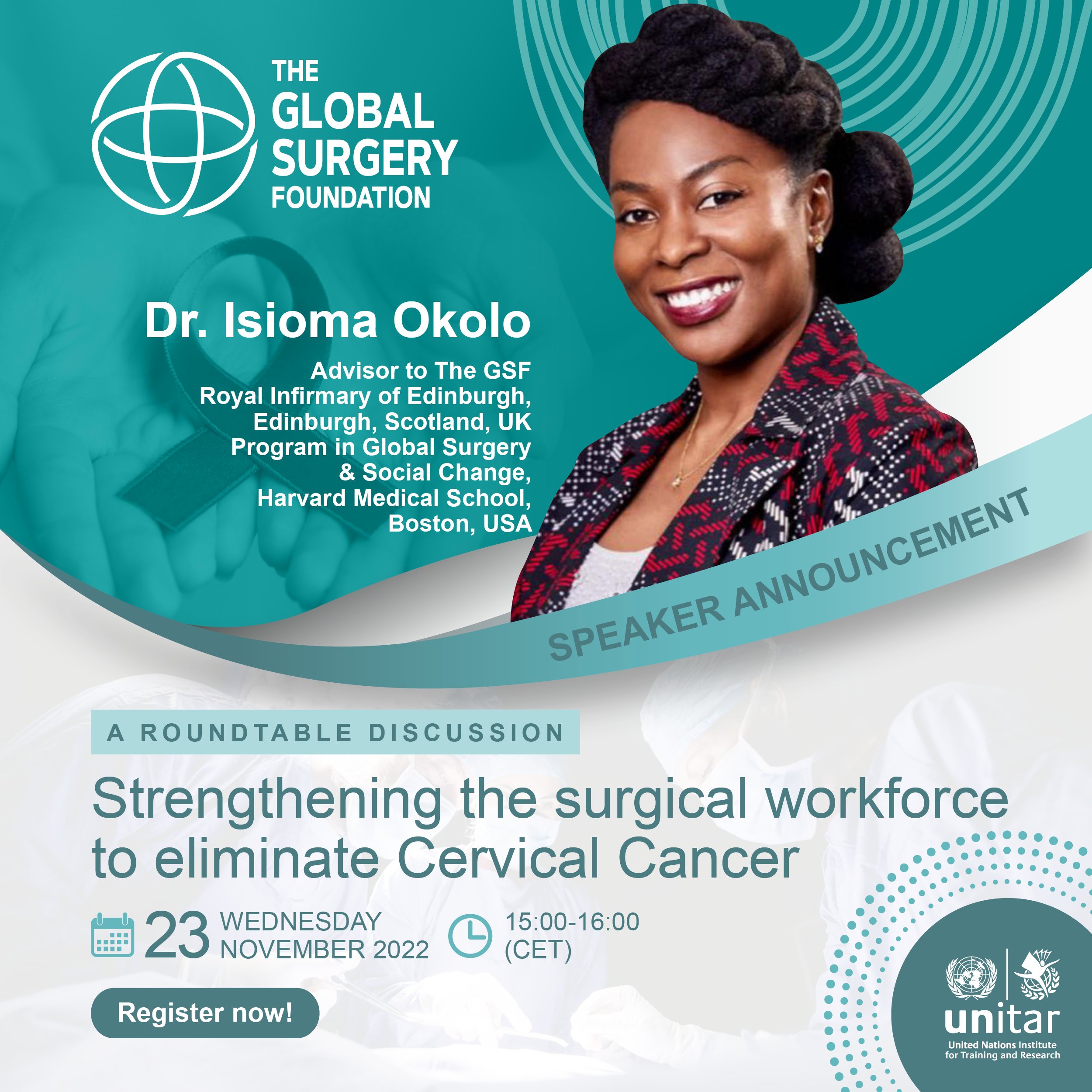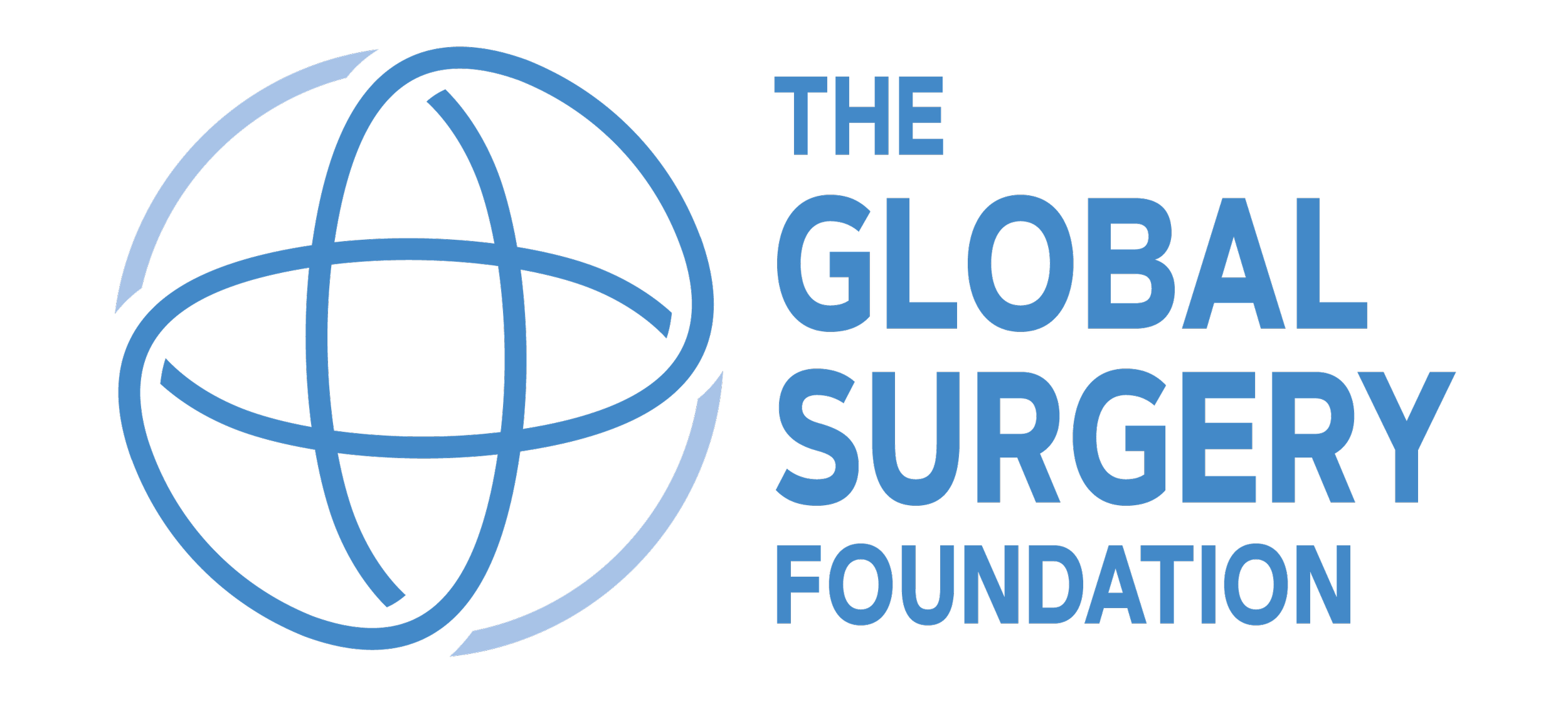Recording available: Cervical Cancer - Strengthening the surgical workforce
The Global Surgery Foundation and UNITAR hosted a special online event entitled:
Strengthening the surgical workforce to eliminate Cervical Cancer
Date: 23 November 2022 at 3PM CET
Background
Cervical cancer is the fourth most frequent cancer among women and nearly 90% of deaths occurred in low- and middle-income countries in 2018, according to the World Health Organization (WHO). Cervical cancer is developed by nearly 600,000 women with over 300,000 deaths annually, impacting the lives of many women and girls. In 2020, the WHO launched the global strategy to eliminate Cervical Cancer to address this challenge. The vision of the strategy by WHO proposes a world where Cervical Cancer in eliminated as a public health problem. The 90-70-90 targets were specifically set to reach that vision, which includes:
90% of girls fully vaccinated with HPV vaccine by age 15 years.
70% of women are screened with a high-performance test by 35 years of age and again by 45 years of age
90% of women identified with cervical disease receive treatment (90% of women with precancer treated, and 90% of women with invasive cancer managed).
Although remarkable progress has been achieved through prevention efforts via vaccinations and screening, not enough has been done to address the treatment target.
Sustainable solutions for treatment require overall surgical systems strengthening, with a dire need to strengthen the healthcare workforce and specialised training, particularly in resource-limited settings. A radical hysterectomy is the most common treatment for early-stage cervical cancer: the surgical removal of the cervix, uterus, and surrounding tissues. This is most effective with a combination of chemotherapy and radiotherapy.
Following the second anniversary of the WHO’s Cervical Cancer elimination initiative, The Global Surgery Foundation (The GSF) and the United Nations Institute for Training and Research (UNITAR) invite you to a roundtable discussion on how we can improve cervical cancer treatment and strengthen the surgical workforce, especially in low-income and resource-limited settings.
Guiding questions
What are the current challenges limiting the scale up of surgical treatment in resource-limited settings in relation to workforce?
What are some of the innovative solutions to overcome the challenges?
What are some of the lessons learned from interventions aimed at improving the healthcare workforce?
Objectives
Event objectives
Raise awareness on Cervical Cancer treatment, particularly in resource-limited settings.
Offer a venue for knowledge sharing and discussion on Cervical Cancer and surgical systems strengthening.
Promote a learning atmosphere and establish a strong network which can be utilized after the event.
Identify and understand how to coordinate catalytic and sustained financing to scale solutions.
Learning objectives
After the event, participants will be able to:
Understand the current training models used in resource-limited settings.
Identify the main challenges for implementing training programmes.
Expand networks and identify partners with expertise in Cervical Cancer treatment.
Agenda
Speakers
Keynote address
Dr. Phumzile Mlambo-Ngcuka, Member of The GSF Foundation Board, Former UN Under-Secretary-General (USG) and Executive Director (ED) of UN Women & Former Deputy-President of South Africa
Panelists
Dr. Sara Nasser, Gynecologic Oncology, Charité Comprehensive Cancer Center, Charité – Universitätsmedizin Berlin, Berlin Member of Vice-President of the Pan-Arabian Research Society for Gynecological Oncology
Prof. Rahel Ghebre, Department of Obstetrics, Gynecology and Women's Health (OBGYN), University of Minnesota
Dr. Tadios Mekonnen Asres, Director of the Gynecology Oncology Fellowship, Rwanda
Prof. Michael Hicks, University of North Carolina, Chapel Hill, Director of Gynecologic Oncology, Michigan Cancer Institute, International Mentor Gynecologic Oncology Fellowship, University Teaching Hospital, Lusaka, Zambia
Prof. Grosebeck Parham, Prof. Gynecologic Oncology, UNC Senior Clinical Expert, WHO Cervical Cancer Elimination Initiative
Ms. Joanne Manrique, President of the Centre for Global Health and Development
Moderator
Dr. Isioma Okolo, The GSF Advisor, Royal Infirmary of Edinburgh, Edinburgh, Scotland, UK, Program in Global Surgery & Social Change, Harvard Medical School, Boston, USA
Target audience
Clinicians, Civil society, government officials, and personnel from non-profit and private sectors who work on, are impacted, or interested in learning more about Cervical Cancer, surgical care, and health systems strengthening.
This event was organised as a collaboration of The GSF & UNITAR
Resources
Follow us on Social Media to get the latest on this event and global surgery!
